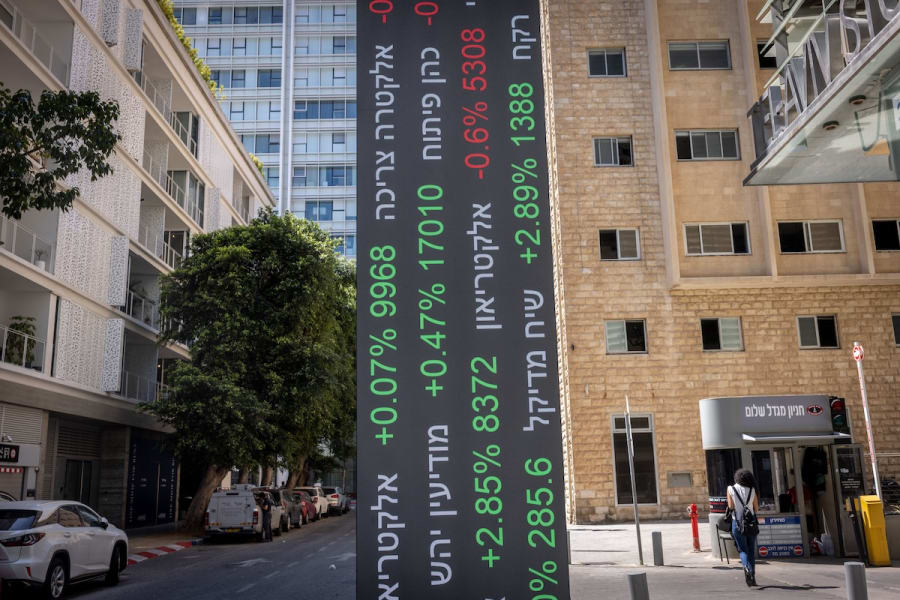Tel Aviv Stock Exchange rises on hopes of Gaza ceasefire, expectations of steady interest rates
Despite war-related uncertainty, TASE continues to rise since start of the year

The Tel Aviv Stock Exchange (TASE) reported sharp increases on Sunday following the publication of details regarding U.S. President Donald Trump’s 21-point plan aimed at ending the Gaza war, releasing the Israeli hostages, and reconstructing the Gaza Strip.
TASE’s benchmark TA-125 index gained 3% by the end of the day, recovering the 1.5% it had lost earlier this month. Only a few stocks on the index declined, and the index is up 26% overall since the beginning of the year.
The TA 35 index jumped by about 2.7% – its best performance in almost two years – while the TA 90 index added about 3.9%. Among the sectoral indices, the insurance index saw the largest increase, strengthening by about 7.3%. It was followed by the construction and finance indices, which jumped by about 6% and 5.8%, respectively, as well as the bank index, which increased by approximately 4.7%.
The markets are still awaiting the Bank of Israel's interest rate decision, which will be announced on Monday. For a while, analysts expected the first rate cut in several years due to slowing economic growth, but the current assessment is that the rate will remain unchanged.
Bank of Israel Governor Amir Yaron, known for his cautious approach, is expected to choose stability by retaining the current interest rates in the face of an uncertain geopolitical and financial landscape.
At the close of the trading day, Yaniv Pagot, TASE's VP of Trading, described the enthusiasm in this way: “The buds of optimism sown on Thursday sprouted quickly today, against the backdrop of growing hope for an end to the war. No one wants to be off the stock exchange when a deal is announced. This is the definition of FOMO (Fear of Missing Out) in the world of the capital market.”
“The market understands what the end of the war means for the Israeli economy, the real estate industry, and the interest rate environment in the economy,” Pagot explained.
However, some analysts urge caution. IBI investment house chief economist Rafi Gozlan told the Times of Israel that while that while optimism is growing following the publication of Trump’s proposal and Prime Minister Benjamin Netanyahu’s trip to Washington, “We are likely to see a more volatile market in the coming days as the real test for the materialization of the proposals is still ahead of us when Netanyahu returns from the visit.”

The All Israel News Staff is a team of journalists in Israel.
You might also like to read this:

















